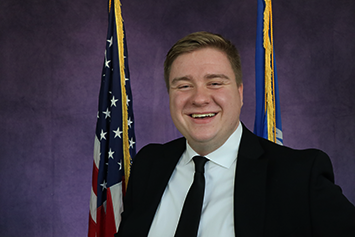Online classes make the grade

Whitewater Student Government Director of Intergovernmental Affairs Will Hinz
March 7, 2021
Students of UW-Whitewater were presented with their first full semester of hybrid learning methods due to the COVID-19 pandemic in the fall of 2020. Many classes changed to a fully remote and online format while some were hybrid and others remained in-person. Sports, on-campus clubs and activities, and life in Whitewater drastically changed with safety protocols. For those who were enrolled at UW-Whitewater during the fall 2020 semester, their thoughts on how their college experience was during this unique time in history is of great curiosity to many. This is exactly what interested the Whitewater Student Government (WSG).
Over 1,400 students participated in the student government’s survey that asked various questions about their remote learning experience during the fall semester.
“We were principally interested in getting a clearer picture about life as a UW-W student last fall – from trying out Hyflex classrooms to navigating college as a brand new student,” said political science assistant professor Eric Loepp.
Loepp helped create and run the survey alongside the student government. He went on to explain that the main goal of the survey was to find out how things went for students overall. But a part of the survey was asking questions about specific things that remote learning entails – things like the preferred style of online exams or even something as simple as putting your camera on in online meetings.
“For instance, we asked about why students would opt not to use their webcams in remote meetings. It turns out that technological limitations are not the main reason – it is more common that students do not use web cams because it is awkward to be the only one doing it,” Loepp said.
Throughout the survey, the members of the student government gathered interesting and useful data. Developed through December and given during the winter break, the survey is complex in its structure with certain answers leading a participant to different follow-up questions.
For the most part, the majority of students felt satisfied with the semester and UW-Whitewater. This does not mean that remote learning is the preferred method. Along with Dr. Loepp, WSG director of intergovernmental affairs Will Hinz took part in the creation of the survey.
“Students reported higher satisfaction levels with face-to-face courses relative to some other modalities, but the difference is not particularly large in most cases,” said Hinz.
Hinz went on to explain that questions and answers like these can lead to more discussion as to the reasoning behind the student’s preferences. Questions like “Did students just like being with peers? Did they feel they could connect with their professor more?”
The survey gave a peek inside the thoughts and reactions of the student body here at Whitewater. Both Hinz and Loepp were happy with the participation of the survey considering it was given over winter break. They realize that the results may not represent what the whole student body thinks, but that some of the main data points would not change if given to a larger sample of the population.
“For example, in the survey students said that good instructors were far and away the most important element of a successful remote learning experience. We do not think these patterns would fundamentally change if the sample was larger,” said Loepp.
Results show that in its first full semester of navigating the COVID-19 pandemic, UW-Whitewater passed the test.












